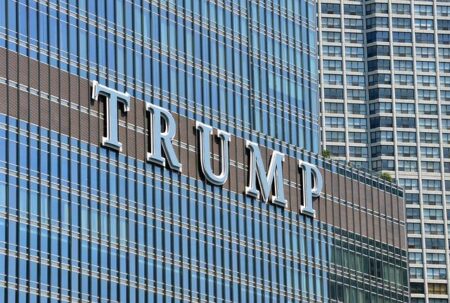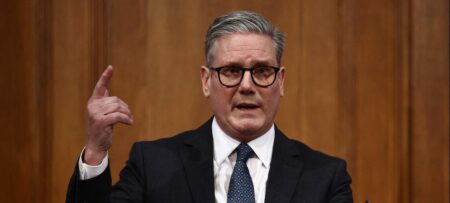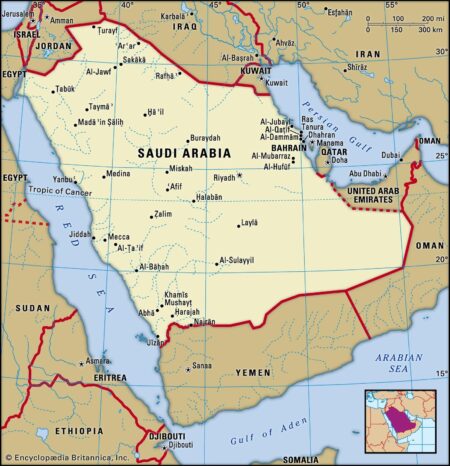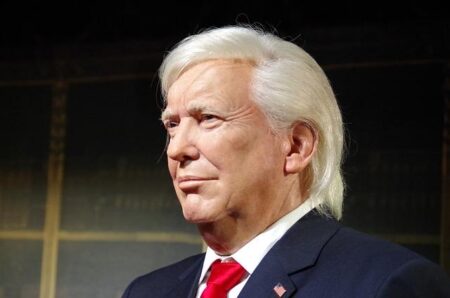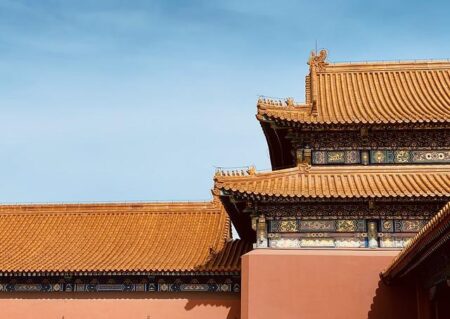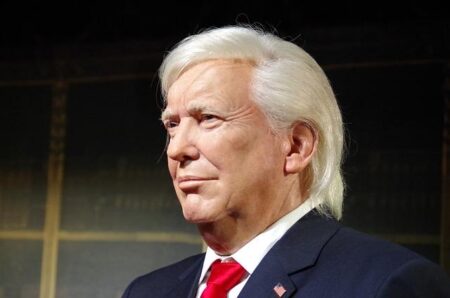In a recent statement, Canadian Prime Minister Justin Trudeau criticized former President Trump’s tariffs as “dumb,” suggesting they are part of a broader strategy aimed at facilitating a potential U.S. annexation of Canada. Trudeau’s remarks underscore heightened tensions between the neighboring nations.
Browsing: international relations
Ukrainian President Volodymyr Zelenskyy expressed pessimism regarding the prospects for peace in the ongoing conflict with Russia, stating that the resolution remains ‚Äúvery, very far away.‚ÄĚ His comments highlight the enduring challenges facing both nations.
Italy’s Prime Minister Giorgia Meloni warned that increasing division within the West poses a “fatal” risk for all nations involved. Her remarks highlight the urgent need for unity among Western allies in addressing global challenges.
In a significant shift in trade policy, President Trump’s tariffs on imports from Canada, Mexico, and China have taken effect, aiming to protect American industries. Critics argue these measures could disrupt supply chains and raise consumer prices.
In a recent address, Labour leader Sir Keir Starmer proposed a “coalition of the willing” to secure lasting peace in Ukraine. Emphasizing international cooperation, he urged nations to unite in support of Ukraine amid ongoing conflict, aiming for stability and security.
Saudi Arabia, Russia, Iraq, the UAE, Kuwait, Kazakhstan, Algeria, and Oman have reaffirmed their commitment to maintaining oil market stability. This collective pledge aims to support a healthier outlook for global oil prices amid ongoing economic challenges.
Italy’s government is standing by its controversial plan to process asylum-seekers in Albania as it faces scrutiny at the EU’s top court. Authorities argue the move addresses migration challenges while ensuring compliance with EU regulations.
Germany’s upcoming election promises to significantly influence Europe’s stance toward a more assertive Trump administration. As voters head to the polls on Sunday, the future of key policies on transatlantic relations and global cooperation hangs in the balance.
In a recent statement, former President Donald Trump indicated that the United States is willing to engage in nuclear discussions. This marks a significant shift in rhetoric surrounding arms control, as experts evaluate the implications for global security.
France and Britain’s leaders are traveling to Washington to appeal to President Trump to maintain support for Ukraine amidst ongoing tensions with Russia. Their visit underscores the importance of international cooperation in safeguarding Ukraine’s sovereignty.
In a significant diplomatic effort, UK Labour leader Keir Starmer and French President Emmanuel Macron will discuss pathways to peace in Ukraine during their upcoming summit in London. The meeting underscores a united front in addressing the ongoing conflict.
A recent report by POLITICO Europe highlights concerns that China could leverage its dominance in wind turbine production to exert economic pressure on Germany. This potential “blackmail” could threaten Germany’s energy transition and industrial competitiveness.
In a striking contradiction to the ongoing violence in Ukraine, former President Trump has claimed that Russian President Putin desires peace. Despite these assertions, the war continues unabated, resulting in the death of countless Ukrainian civilians.
An activist highlights that many Italians fail to recognize the Russian threat, attributing this oversight to pervasive Kremlin propaganda. This perception underscores the challenges of countering disinformation and bolstering awareness of geopolitical realities in Italy.
London has clarified that there is currently no joint ceasefire plan with France regarding the conflict in Ukraine. This statement underscores ongoing tensions and the complexities of diplomatic efforts in the region, according to –Ď–į–Ī–Ķ–Ľ—Ć.
In a regular press conference on February 27, 2025, Foreign Ministry Spokesperson Lin Jian addressed key diplomatic issues, emphasizing China’s commitment to multilateralism and constructive engagement in global affairs. The conference highlighted ongoing international collaborations and regional stability efforts.
Brazil is considering the reduction of its ethanol import tax, a move reportedly aimed at fostering closer ties with the U.S. under President Trump. This potential policy shift reflects ongoing discussions about trade relations and energy cooperation.
The Center for Strategic & International Studies highlights the importance of strengthening defense industrial cooperation between Australia and the United States. Enhanced collaboration is crucial for addressing shared security challenges and fostering regional stability.
Argentina’s President Javier Milei is set to visit Israel on March 23, with plans to strengthen bilateral ties. The visit underscores a commitment to enhancing cooperation in trade and security between the two nations amidst evolving regional dynamics.
The Supreme Court has temporarily halted a lower court’s ruling that mandated the Trump administration to compensate foreign aid contractors. This decision postpones the enforcement of the order while further legal considerations unfold, impacting various aid programs.

